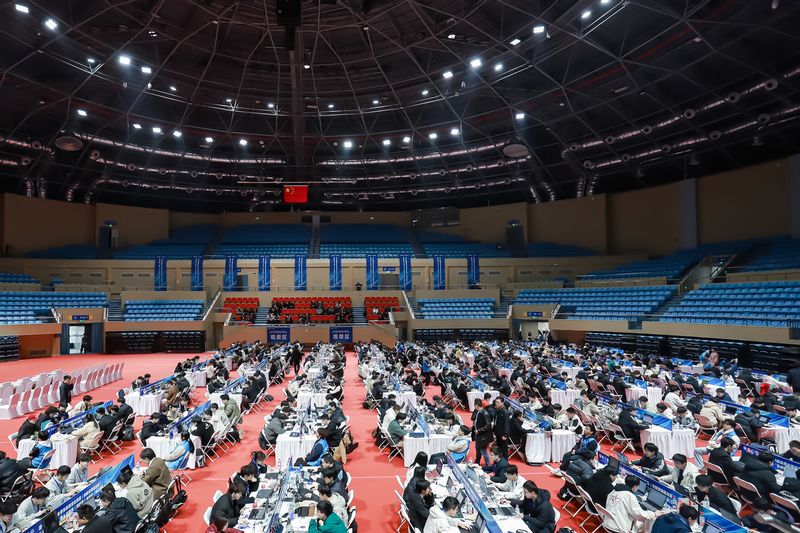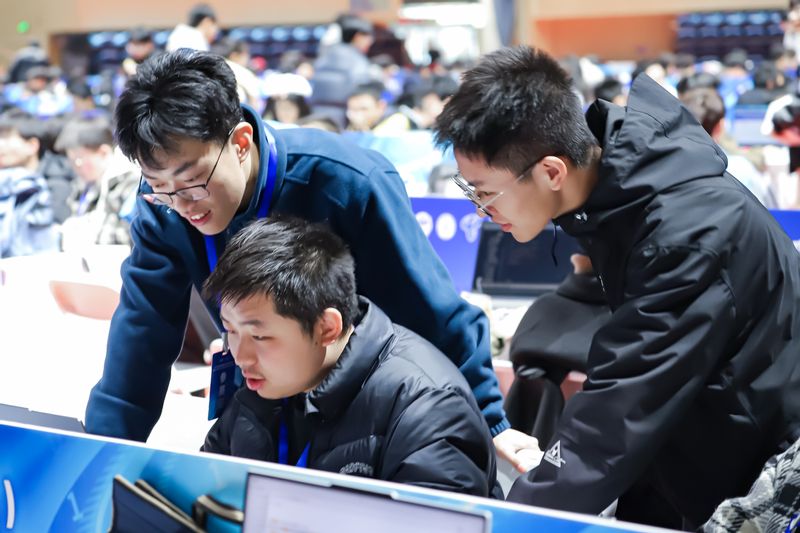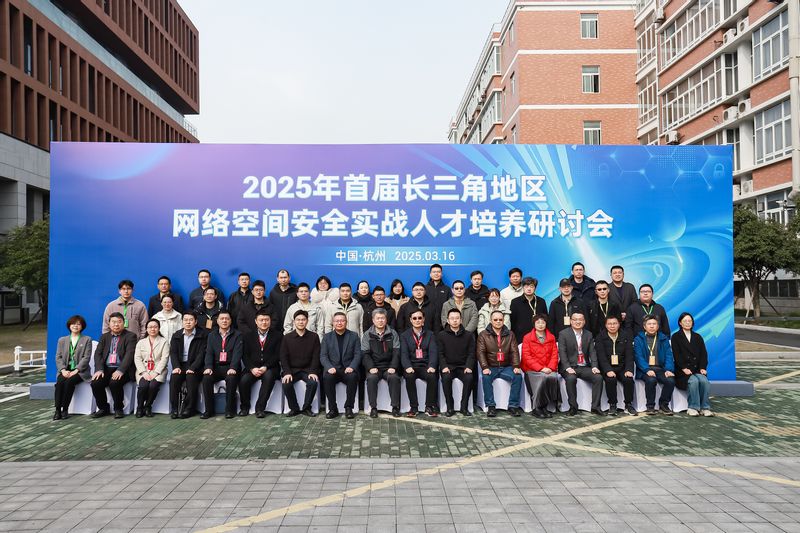On March 16, the 18th National College Student Information Security Competition (Innovation and Practice Competition) and the semi-finals of the 2nd “Great Wall Cup” Triathlon (Protection Competition) (Zhejiang Division) concluded successfully at Hangzhou Dianzi University. Themed “Intelligent Protection: Pioneering a New Era of Digital Security,” the event was guided by the Cyberspace Administration of China, the Ministry of Education, and other government bodies, and co-organized by the China Information Security Evaluation Center and other institutions. As the host of the Zhejiang Division, HDU collaborated with co-organizers including Hangzhou DBAPPSecurity Co., Ltd. and Hangzhou Lingwu Technology Co., Ltd. to create a high-level cybersecurity competition platform for students nationwide.

Practical Empowerment: Dual-Track Design Tests Comprehensive Competence
The Zhejiang Division adopted an online-offline hybrid model, divided into three stages: preliminary, semi-final, and final rounds. It attracted 100 university teams from Shanghai, Zhejiang, Anhui, Jiangsu, and other regions, with a total of 400 students competing. The semi-finals featured a dual-track design of real-world attack-defense confrontation (AWDP) and comprehensive infiltration (ISW). During an intense 8-hour “brain-burning” showdown, participants engaged in fierce competition across challenges such as vulnerability exploitation and defense, penetration testing, and threat detection. A total of 20 first-place prizes, 20 second-place prizes, and 40 third-place prizes were awarded. Notably, three teams from HDU secured first, second, and third places, showcasing our university’s deep-rooted expertise in cybersecurity education.

Industry-Academia Integration: Driving Educational Reform and Technological Innovation
As the host of the competition, the School of Cyberspace Security at HDU has leveraged its strengths in industry-education collaboration in recent years, emphasizing the cultivation of practical cybersecurity talents. Luo Meihua, Secretary of the School’s Party Committee, remarked, “The competition questions are both innovative and practical, not only testing students’ technical skills but also guiding our curriculum reforms. This further strengthens the alignment between talent development and industry demands.”Held concurrently with the competition, the “First Yangtze River Delta Regional Workshop on Practical Cyberspace Security Talent Development” attracted numerous experts, scholars, and industry leaders,who engaged in discussions on topics such as the integration of cybersecurity education with technological and industrial innovation, injecting fresh momentum into academic teaching and industry advancement.

Looking Ahead: Strengthening Cybersecurity Foundations Through Competition-Driven Learning
The successful hosting of this competition marks another innovative endeavor by HDU to bridge education, learning, and real-world application. By establishing a high-caliber competitive platform, the university has advanced the deep integration of educational and talent development chains with industry demands, contributing to building a robust talent foundation for China’s cybersecurity ambitions. High-level cybersecurity competitions not only enhance participants’ enthusiasm and capabilities but also drive technological innovation and application, fostering the sustainable growth of cyberspace security ecosystems.
According to official reports, alongside the Zhejiang Division, semi-finals were simultaneously held in Tianjin, Guangdong, Sichuan, and Shaanxi. Under the competition rules, the top 40 teams in each division received cash prizes, while all semi-final participants were awarded Level 1 certifications from the National Information Security Proficiency Examination (NISP). The top 20 teams from each division (100 teams nationwide) advanced to the finals of the 2nd “Great Wall Cup” Triathlon (Protection Competition), which will be held in Fuzhou in April 2025, concurrent with the Digital China Summit.






